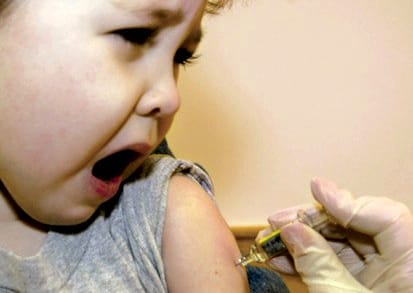Genetically engineered vaccination
One bacteria derived vaccine for many infectious diseased

A new type of vaccine for pneumonia based on genetically engineered bacteria has been developed, and may help in the fight against many other infectious diseases.
The vaccine, which protects against a virulent form of the bacterium Streptococcus pnuemoniae, works by introducing a modifed form of the bacterium that produces less pneumolysin — a toxic protein that damages blood vessels in the lungs and interferes with the immune system. Researchers, from the Albert Einstein College of Medicine, identified the genetic sequence that codes for the pneumolysin protein, and using computer algorithms created a modified gene which would decrease the amount of toxin produced.
Mice exposed to the modified bacteria experienced significantly less inflammatory symptoms than those exposed to the wild type. Most importantly, 80% of mice exposed to the modified form survived a later exposure to the wild strain.
Traditionally, vaccines are created with either dead or attenuated organisms, with the aim of inducing an immune response, but without the disease inducing properties. Attenuation in bacteria has, up to this point, come about by injecting the bacteria into a foreign host. Natural mutations will allow the bacteria to grow well in the host, but subsequently will grow less well when injected into humans. The new technique bypasses this process by designing the mutations using a computer.
While this technique has been succesfully used to reduce gene expression in viral pathogens, the research, published in the Journal of Infectious Diseases, is the first to succesfully attenuate bacteria.
Currently, two vaccines have been created for different forms of Streptococcus using this process. However, as lead researcher Dr Pirofski points out “the vaccines don’t cover all strains of disease-causing pneumococcus – some of which have recently emerged and are very virulent.”
The researchers are confident, however, that the technique they have developed may lead to new vaccines. Dr Pirofksi says: “this idea opens up all kinds of possibilities in developing vaccines, not only against pneumococcus but other organisms as well.”








